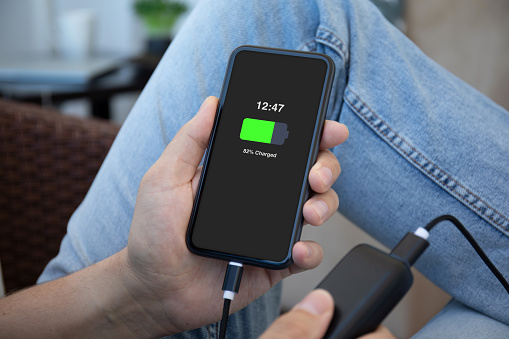6 Expert Tips to Troubleshoot Bluesky Social Custom Domain Verification Issues
Understanding Bluesky Social Custom Domain Verification Process
Before we dive into troubleshooting Bluesky Social Custom Domain Verification issues, let's first understand the process. Bluesky Social Custom Domain Verification process is a crucial step in order to use your own domain for your Bluesky Social account. This process verifies that you are the owner of the domain you're trying to use and ensures that your domain is secure.
The verification process is quite simple and straightforward. You need to add a TXT record to your domain's DNS settings. The TXT record contains a unique code provided by Bluesky Social. Once this is done, Bluesky Social will verify the domain ownership within a few hours.
It's important to note that DNS settings can take up to 48 hours to propagate, so if you've recently made changes to your DNS settings, it's best to wait before attempting to verify your domain.
If the verification process fails, it's likely due to an issue with the DNS settings or incorrect code placement. We'll cover troubleshooting tips in the upcoming sections.
The Importance of Custom Domain Verification
Custom Domain Verification is a crucial step in setting up your online presence. It is a process that verifies that you own the domain name and it's a critical part of the verification process required by Bluesky Social. Custom domain verification enables you to use your domain name as your Bluesky handle rather than a .bsky.social subdomain. This is important because it helps to build your brand identity, making it easier for customers and followers to remember and recognize your handle.
Moreover, custom domain verification also helps in improving your Bluesky page's credibility and search engine ranking. Search engines like Google consider custom domain names to be more trustworthy than subdomains. Having a custom domain name has been shown to contribute to higher search engine rankings, which means that your handle will appear higher in search results when customers search for relevant keywords.
It's important to ensure that your custom domain verification is set up correctly, as it can cause issues with your website's functionality and can prevent customers from being able to access your site. Therefore, it's essential to understand the importance of custom domain verification and to take the necessary steps to ensure that it's set up correctly.
Common Bluesky Social Custom Domain Verification Issues
Bluesky Social Custom Domain Verification is a powerful tool for businesses looking to customize their social media presence and improve brand recognition. However, it can be frustrating when issues arise during the domain verification process. Here are some common problems that businesses face during Bluesky Social Custom Domain Verification:
1. DNS configuration issues
This is the most common issue that individuals and businesses face during Bluesky custom domain verification. It occurs when the DNS settings are not configured properly, causing the domain verification to fail. To fix this, ensure that the DNS settings are correct and validate them with the Bluesky Social support team.
2. Domain ownership verification
Sometimes, businesses don't have the necessary permissions to manage the domain they're trying to verify. This can happen when the domain is registered in someone else's name or if the domain has been transferred recently. To resolve this, make sure you have full ownership of the domain and contact Bluesky Social support if you're still experiencing issues.
3. SSL certificate issues
If your website doesn't have a valid SSL certificate, domain verification can fail. This is because Bluesky Social requires a secure connection to your website to verify the domain. To fix this, install a valid SSL certificate on your website.
4. Incorrect domain configuration
If your domain is not configured correctly, it can cause domain verification to fail. This can happen if you've recently made changes to your domain settings, or if your domain is pointing to the wrong IP address. To fix this, double-check your domain configuration and make sure it's correct.
By understanding these common issues, you'll be better equipped to troubleshoot any problems that arise during the Bluesky Social Custom Domain Verification process. If you're still experiencing issues, don't hesitate to reach out to Bluesky Social support for additional assistance.
Tips to Troubleshoot Bluesky Social Custom Domain Verification Issues
Tip #1: Ensure you have updated DNS settings
When you're trying to verify your custom domain on Bluesky Social, the first thing you should check is if your DNS settings are up to date. DNS (Domain Name System) is the system that translates website URLs into IP addresses that computers can understand. If your DNS settings are incorrect or outdated, it can cause issues with domain verification and prevent your custom domain from being linked to your Bluesky Social account.
To check your DNS settings, you'll need to access your domain registrar's website or contact their support team. Look for the DNS settings or DNS management section, and make sure that the necessary records are set up correctly. The required DNS records for Bluesky Social custom domain verification include a CNAME record and an A record.
Ensure that the records from Bluesky social are added to the DNS zone file for the domain you want to verify. To get started, read our complete guide on how to link a custom domain to your Bluesky account.
It's also important to note that DNS changes can take some time to propagate, so even if you've updated your DNS settings, it may take a few hours or up to 48 hours for the changes to be reflected across the internet. If you're still experiencing issues with domain verification after updating your DNS settings, move on to the next tip to troubleshoot the issue.
Tip #2: Wait for DNS Propagation to complete
If you have verified your domain ownership on BlueSky Social and are still experiencing issues, it may be a simple matter of DNS propagation. DNS propagation is the process that occurs when your domain's DNS information is updated across the internet. This process can take anywhere from a few hours to a few days, depending on various factors such as the TTL (time to live) setting on your DNS records.
So, if you have recently updated your DNS records or added new ones, it's important to wait for the DNS propagation process to complete before attempting to verify your domain ownership on BlueSky Social again. If you try to verify your domain ownership before the DNS information has fully propagated, you may encounter issues with the verification process.
To check the status of DNS propagation, you can use online tools such as DNS Checker or WhatsMyDNS. These tools will allow you to see the current status of your DNS records across various DNS servers around the world. If the DNS propagation process is still in progress, you may need to wait a little longer before attempting to verify your domain ownership on BlueSky Social again.
In summary, waiting for DNS propagation to complete is a simple but crucial step in troubleshooting domain verification issues on BlueSky Social. By being patient and allowing the DNS information to fully propagate, you can ensure a smooth and successful verification process.
Tip #3: Check domain's SSL certificate validity
One of the most common reasons for Bluesky Social Custom Domain Verification issues is the lack of a valid SSL certificate for your domain. When you purchase a domain, it's important to ensure that it comes with an SSL certificate. SSL certificates ensure that all your website traffic is encrypted, making it secure and safe for your customers to browse your website and input their personal information, including credit card details.
If your SSL certificate is not valid, Bluesky Social will not be able to verify your domain, and this can cause issues with your social media accounts. To check if your SSL certificate is valid, you can simply go to your website and look for the padlock icon in the address bar. If the padlock icon is green and says "secure," this means that your SSL certificate is valid and working correctly.
If you don't have an SSL certificate or your current one has expired, you'll need to purchase a new one. Many domain registrars offer SSL certificates as part of their packages, so it's worth checking with your registrar before purchasing one separately. Once you've purchased your SSL certificate, you'll need to install it on your website. This process can vary depending on your website hosting provider, so it's worth checking their documentation or contacting their support team for help.
By ensuring that your domain has a valid SSL certificate, you can avoid Bluesky Social Custom Domain Verification issues and provide a secure browsing experience for your customers.
Tip #4: Check for domain conflicts
When trying to verify your custom domain, one issue that may arise is domain conflicts. This means that the domain you are trying to verify has the same name as another domain that is already verified by Bluesky Social. This can happen if you have multiple accounts with Bluesky Social and have already verified the domain on one of those accounts.
To check for domain conflicts, you need to log in to your Bluesky Social account and go to the "Domains" section. Here, you can see a list of all the domains that have been verified on your account. If you see the domain you are trying to verify on this list, it means that there is a conflict.
To resolve this issue, you need to remove the verified domain from your account. Go to the "Settings" section of your Bluesky Social account, and select "Domains". Find the domain that is causing the conflict and click on the trashcan icon to remove it from your account.
Once you have removed the conflicting domain, you can try verifying your custom domain again. This time, the verification process should go smoothly without any conflicts. If you still encounter issues, you may need to reach out to Bluesky Social's support team for further assistance.
Tip #5: Verify domain ownership with alternate methods
If you've tried all the standard methods of domain verification and are still having trouble, it's time to look into alternate methods of verification. There are a few different ways to do this, depending on your domain registrar and hosting provider.
One option is to use a DNS record to verify domain ownership. This involves adding a TXT record to your domain's DNS settings, which Bluesky Social can then check to confirm ownership. You'll need to log in to your domain registrar's website to access your domain's DNS settings and add the TXT record.
Another option is to verify domain ownership by uploading a HTML file to your website. Bluesky Social will provide you with a file to upload to your website's root directory. Once uploaded, you can click the "Verify" button in Bluesky Social to confirm ownership.
If neither of these methods work, you can also try verifying domain ownership by adding a CNAME record to your domain's DNS settings. This involves adding a specific DNS record that points to Bluesky Social's servers. You'll need to log in to your domain registrar's website to access your domain's DNS settings and add the CNAME record.
It's important to note that some domain registrars and hosting providers may not allow these alternate methods of verification. If you're having trouble, it's a good idea to contact your provider's support team for assistance. With a little perseverance, you should be able to verify your domain ownership and get back to using Bluesky Social in no time.
Tip #6: Contact Bluesky Social support
If you've tried all the tips listed above and you're still experiencing issues with Bluesky Social custom domain verification, it's time to contact Bluesky Social support. They are the experts in their platform and can help you resolve any issues that you're experiencing.
You can contact Bluesky Social support through their website or by email. When contacting them, be sure to provide as much detail as possible about the issue you're experiencing. This will help them to better understand the problem and provide a solution as quickly as possible.
Bluesky Social support is always available to assist you, so don't hesitate to reach out to them if you need help. With their expertise and knowledge, you can be sure that your custom domain verification issues will be resolved in no time.
Conclusion and Final Thoughts
In conclusion, resolving Bluesky Social custom domain verification issues can be a daunting task but with the right approach, you can overcome them easily. We've explored some expert tips that can help you troubleshoot these issues and ensure that your custom domains are verified and functioning as expected.
First, it's important to understand the common causes of verification issues such as incorrect DNS settings, incomplete or incorrect SSL certificates, and domain ownership issues. Once you've identified the cause of the issue, you can take the necessary steps to resolve it.
Some effective troubleshooting tips include double-checking your DNS settings, verifying your SSL certificate, and ensuring that you have ownership of the domain. You should also consider seeking support from Bluesky Social to get additional assistance in resolving the issue.
By following these tips and remaining patient, you can overcome custom domain verification issues and get back to using Bluesky Social to enhance your social media marketing efforts. Remember that persistence is key and with the right approach, you can successfully troubleshoot and resolve any issues that you encounter.
We hope you found our article informative and helpful in troubleshooting Bluesky Social custom domain verification issues. We understand that this can be a frustrating experience, but with the tips provided, you can quickly identify and resolve these issues. Remember to always double-check your domain settings and follow the instructions provided by Bluesky Social. If you're still having trouble, don't hesitate to reach out to their customer support team for additional assistance. We hope this article has been useful and wish you all the best in your social media endeavors!


.jpeg)


.jpg)

.gif)

.jpg)



